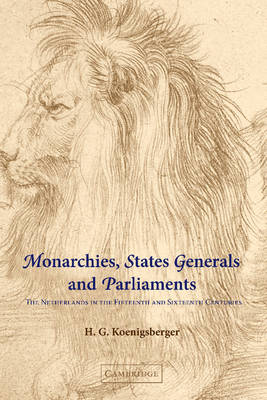Cambridge Studies in Early Modern History
1 total work
This 2001 book charts the history of the States General - the parliament - of the Netherlands and its relations with two phases of monarchical rule in the fifteenth and sixteenth centuries. Unlike the English parliament, the States General was a composite body, representing the local estates of the separate provinces which were anxious to keep their autonomy. The history of the States General was determined by this structure, and by its relations with the monarchy: dukes of Burgundy in the fifteenth century, and Spanish Habsburgs in the sixteenth. Ideally, everyone was meant to cooperate. In practice, there was already a major crisis by the 1480s, and divisions from the 1560s led to decades of civil war. By 1600 the Netherlands had split between the United Provinces - a parliamentary regime, governed as a republic by the States General - and the Spanish Netherlands.
